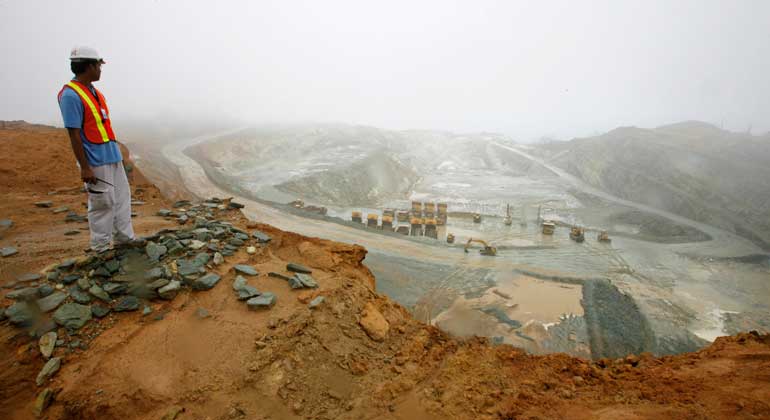
By Revin Mikhael D. Ochave, Reporter
THE GOVERNMENT’S plan to privatize some of its mining assets is long overdue, and will provide a huge boost to the mining industry amid the pandemic, the Chamber of Mines of the Philippines (COMP) said.
“It’s about time that the government should look deeper into reviving the mining industry, especially in the midst of the COVID-19 pandemic. The idea of selling or privatizing the government’s legacy mining assets should have been done a long time ago,” COMP Executive Director Ronald S. Recidoro told BusinessWorld via mobile phone message.
While productivity of these old mines will not be as good as new ones, Mr. Recidoro said it would “address the environmental issues posed by the abandoned mines such as erosion, while companies will be able to unlock the value of these mines.”
He said the government-owned mining assets still have value that can be tapped once operations resume, unlike new mining projects that would have to undergo a long application process.
“If you want to have immediate returns or revenue, you may want to consider reviving the old mining projects. It will be less costly to rehabilitate old mining sites than to approve new mining projects because the winning bidders of the existing state-owned assets will not have to conduct too much exploration work,” Mr. Recidoro said.
However, Mr. Recidoro said the government should address other issues before the mining industry can be fully revived, such as the current moratorium on new mining projects under Executive Order 79, the ban on open-pit mining, and the ongoing suspension of mines by the late Environment Secretary Regina Paz L. Lopez.
Meanwhile, Mines and Geosciences Bureau (MGB) Director Wilfredo G. Moncano said the privatization of state mining assets will go through a process but will take less time than securing a new permit.
“There is still a process after a winning bid is awarded but it is not as tedious as a new applicant,” Mr. Moncano said in a mobile phone message.
Mr. Moncano said the country’s mining sector’s full potential has not been maximized, but would need the support of both the executive and legislative department.
Currently, House Bill No. 6135 that provides a fiscal regime for the mining industry has hurdled the House Committee on Ways and Means while the counterpart measure Senate Bill No. 313 is still awaiting committee approval.
Mr. Moncano said the MGB’s Land Geological Survey Division has estimated that the value of the country’s metallic and non-metallic mineral resources, including sand and gravel, are worth $7 trillion.
The current contribution of the mining industry to the country’s gross domestic product (GDP) is less than 1%. He said this contribution can be bigger once mining policies are improved.
“There had been mining operations in the past that left their mining sites unrestored and unrehabilitated when major problems occurred like tailings spill, global recession, or major drop in mineral commodity prices,” Mr. Moncano said.
“These idle mining assets have values in several billions that need serious investors that are willing to comply also with our country’s law,” he added.
Finance Secretary Carlos G. Dominguez III on Wednesday said the government wants to revive the mining industry to generate revenues and create jobs.
He said he has asked the Privatization and Management Office (PMO) to proceed with the plan to privatize Nonoc Mining and Industrial Corp. and Basay Mining Corp., among others, after reviewing all of the government’s existing mining assets, to look for additional revenue sources.
